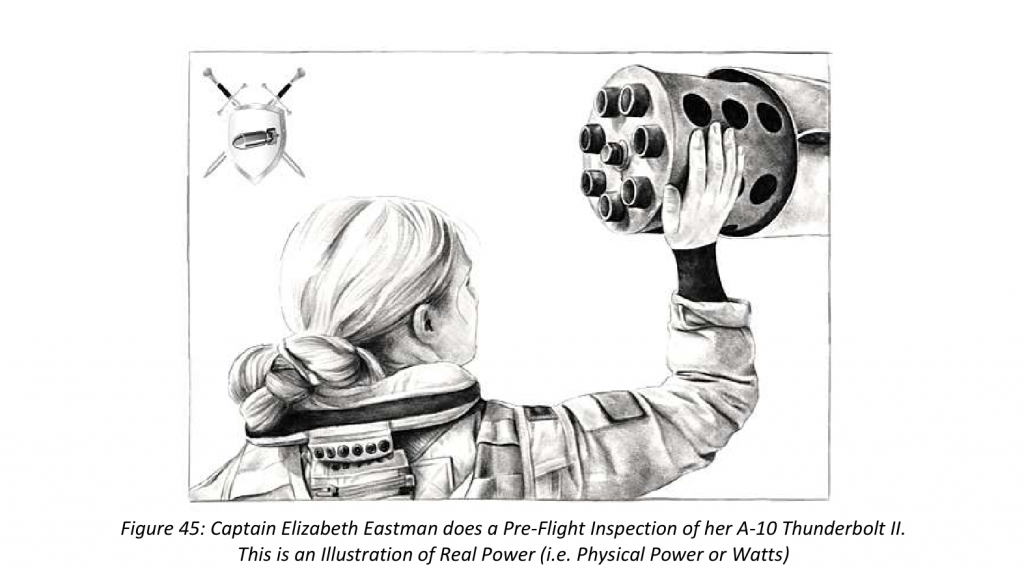An in-depth critique of Jason P. Lowery’s Book “Softwar”
Books are among the cornerstones of Bitcoin education. They introduce newcomers and show how multilayered and profound the subject of Bitcoin is. This statement is true for almost all books, with one major exception: Softwar by Jason P. Lowery. The 380-page work is full of crude theses and dangerous ideology. I read it anyway. So you don’t have to. Here is my review.
Softwar came out in late February 2023 and has quickly made a name for itself as the most controversial Bitcoin book in history. But that is misleading. Because Softwar is not a book about Bitcoin. Rather, it is a Social Darwinist-tinged, war-glorifying book that uses extreme utopianism based on questionable logic to show that Bitcoin is not primarily money, but a cyber-security system. This could, according to the central conclusion of the book, dominate a new internet run by a global supercomputer. All this based on energy and thus physical power. Lowery believes that Proof-of-Work as it is currently run by Bitcoin is practically an equivalent to warfare. Therefore, his takeaway, it must be in the strategic interest of the U.S. Department of Defense to engage in it. That was Softwar in a nutshell.
«Because Softwar is not a book about Bitcoin. It’s a Social Darwinist-tinged, war-glorifying book that uses extreme utopianism based on questionable logic to show that Bitcoin is not primarily money, but a cyber-security system.»
Every popular Bitcoin book has the goal of explaining the Bitcoin (monetary) system in some way to the interested reader. With different frameworks: “The Bitcoin Standard” focuses primarily on the history of money. “Layered Money” shows the complexity of money using a conceptual idea. “The Little Bitcoin Book,” on the other hand, focuses on ethical issues and human rights. The authors agree on one thing: Bitcoin is money.
Softwar author Jason P. Lowery, a major in the U.S. Space Force, instead wants to establish something like an impossibly falsifiable thesis. Unfortunately, the core of this thesis, or the logic of his argument, is lost in most discussions about the book. This is mainly due to two things: First, the book is more than 380 pages, so densely written (750 words/page) that it could easily double in size. Most buyers of the book simply don’t finish reading it. On the other hand, Mr. Lowery is a regular guest on all sorts of bitcoin podcasts where he presents a watered down form of his argument. Mr. Lowery on the podcast is NOT Softwar, the book.
The belief in bitpower world domination
The reason Mr. Lowery has been able to build an army of fans and come off so well in the public debate is that Bitcoin fans WANT what he says to be true. Who doesn’t like to believe that Bitcoin is so important that the U.S. Department of Defense must recognize it as a strategy? Who doesn’t want to see Bitcoin as the next step in human evolution? Who doesn’t want the Internet of the future to be built on proof-of-work and something he calls “bitpower”? Lowery not infrequently backs up the authority of his theses wearing uniform, which has an astonishing effect on many Bitcoiners. Who would have thought that the many libertarian free spirits and anarcho-capitalists could become fans of executive state power so quickly? But back to the book. What is it about and what is so controversial about the theses?
«The reason Mr. Lowery has been able to build an army of fans and come off so well in the public debate is that Bitcoin fans WANT what he says to be true.»
“Warfighting is a safety feature”
Lowery begins by describing over several hundred pages the central operating principle of human society to this day. As late as page 200, it’s not about Bitcoin or software, but evolution and human nature. For those who have forgotten, the title of chapter 4.9.7 reminds us once again of the central element: “Warfighting is a safety feature, not a bug.” For Lowery, war, not economics or the cooperation that goes with it, is at the heart of all human endeavor. For existence is determined by the constant struggle for resources. Either one attacks or one defends oneself. And every attack has a benefit (“Benefit of Attack”) and associated costs (“Cost of Attack”) that are weighed against each other. Only those who show the other that each attack is associated with massive costs survive. The principle is called Physical Power Projection. And what applies in the animal kingdom, Lowery transfers 1:1 to human society.

But the author goes even further. War is not only inevitable, but also has many advantages. War, he says, is a decentralizing force that perfectly regulates property relations on our planet, and does so in a completely egalitarian, “permissionless” and “zero-trust” manner. Again and again he drops these adjectives, building step by step the unsurprising bridge to the topic of Bitcoin and especially Proof-of-Work.
«War, according to Lowery, is a decentralizing force that perfectly regulates property relations on our planet, and does so in a completely egalitarian, “permissionless” and “zero-trust” manner.»
Einstein: Mass is energy
He justifies his transition from warfare to Bitcoin or Proof-of-Work with two statements by prominent scientists. First, Einstein famously said that mass and energy are, in principle, synonymous and merely manifestations of the same physical quantity.
«Einstein theorized that mass is swappable with energy. Assuming he’s right, this would imply that nations could one day learn how to swap some of their mass-based (i.e. kinetic) defense systems with energy- based (i.e. non-kinetic) defense systems for applications related to physical security and national defense.»
Lowery concludes that proof-of-work with electrical energy is equivalent to warfare with kinetic energy. Secondly, he quotes Nikola Tesla, who predicted that warfare would reach its limits in the course of mankind (kinetic ceiling). Instead, he envisioned an undefined electrical competition among nations in which the global pecking order would be determined by energy, among other factors.
«As Tesla predicted in 1900, maybe it would involve intelligent machines competing against each other in an energy competition, while humans watch peacefully from the sidelines.»
Proof-of-work is thus the realization of Tesla’s vision (“intelligent machines”), because the physical component of proof-of-work would make attacks in cyberspace too expensive. His conclusion is that Bitcoin is a weapons-like defense system that must be in the strategic interest of the U.S. and other countries. Thus, Lowery’s war metaphor is based on the following assumptions:
kinetic energy → electrical energy
warfare → proof-of-work
Land / water / air → cyberspace
In short, Bitcoin is a weapon and thus a defense system for use in cyberspace.

War over everything
Why the focus on evolution and war? Why not Bitcoin, software, and global supercomputers instead? Aside from the fact that Mr. Lowery is writing his master thesis at MIT in the field of National Defense, which inevitably puts warfare front and center, he is also pursuing an argumentative goal with this logic: after all, if millions of years of evolution – from microbes to mammals to humans – prove that property rights are fundamentally best regulated with physical energy (war), then it can’t be any different in cyberspace. In other words, proof-of-work appears not only as a mere logical consequence, but is practically a deterministic fact. There is no alternative, Proof-of-Work must prevail in an evolutionary way.
«The property rights we enjoy today exist because people were willing to project lots of physical power to claim and maintain those rights.”»
Survival of the Fittest
Lowery argues strictly in terms of Social Darwinism. Like many social scientists of the late 19th century, he wants to derive all rules of human society from evolution and thus from the animal kingdom. Thus, Softwar is dripping with comparisons between humans and animals. And there are many sketches to show what it’s all about: snarling wolves or menacing sharks. It’s about “survival of the fittest” and – the Softwar term that rules them all – “physical power projection.” Sadly, the modern topic of Bitcoin tends to cloud the kind of ancient ideologies Lowery is shaking out of his sleeve.
One of his big claims is that animals can only protect their resources by signaling to their environment that there are immense “physical costs” associated with an attack. Accordingly, the power projection of a large army or nuclear weapons in modern times goes back to the animal kingdom. Thus he writes about the evolutionary “survival artists”: “Their teeth and nails are sharpened in order to inflict severe physical harm to their neighbors by puncturing them. The top survivors in the natural world often possess adaptations that enable them to pinch, puncture, and bludgeon their opponents”. He would like to transfer all this to human society. Survival of the fittest.
«Warfare is a niche field of expertise that almost everyone in society outsources to people like the author”»
Social Darwinism
Social Darwinism, to which Lowery clings to here, is a perversion of Darwin’s theses from “The Origin of the Species” of 1859, the book that dominated the philosophy of the late 19th century. Among the best-known representatives of Social Darwinism was, for example, Herbert Spencer, who argued similarly in his book “The Social Organism” – 160 years before Lowery. For Spencer, all the features of human society could be derived directly from the animal world – natural selection, “survival of the fittest,” war as a natural and inevitable process in the struggle for important resources. Spencer’s Social Darwinism was sympathetic to many thinkers of the early 20th century and was perverted by, among others, National Socialism – natural selection eventually became eugenics. Of course, Lowery advocates peaceful coexistence based on proof-of-work systems, but many of his statements could well be from the first half of the 20th century.
«It’s possible for human populations to spend too much time separated from nature to understand their own nature.»
Counterarguments – cooperation, mutualism, and camouflage
Lowery sees only war in the animal kingdom – anyone with a hammer probably sees only nails. Which, given his animal examples (eagles, sharks, or wolves), seems to make perfect sense. But he overlooks the fact that in the animal kingdom all possible strategies lead to survival. Because not the strongest survives and reproduces. But the best adapted. And not all “strategies” have anything to do with physical energy. Animals can survive by camouflaging themselves, by being fast, by having a completely sealed-off underground habitat, or even by cooperating. There is camouflage, mimicry, cooperative mutualism, parasitism, and many other strategies that have nothing to do with war. Each principle could be applied to human society. But Lowery limits himself to one: warfare. And that, he says, is in the nature of humans.
Bitcoin is just „arbitrarily“ money
Also striking is the statement, emphasized again and again as he goes on, that Bitcoin is not necessarily money in the first place just because it is the first application of the technology. He compares Bitcoin to black powder, whose weapons-grade uses were simply overlooked at first. And so Lowery writes: “Therefore, the author asserts that Bitcoin is not monetary technology – at least, money doesn’t appear to be its primary value-delivering function. Instead, Bitcoin appears to be an electro-cyber freedom fighting technology. In other words, Bitcoin isn’t a monetary protocol, it’s a bitpower protocol.” Here again, Lowery finds himself in his typical argument loop: if the basic principle of all life is war, then Bitcoin must be a weapon or a form of defense.
The real invention, Lowery argues, is proof-of-work. The innovation to prevent denial-of-service attacks dates back to the early 1990s, and Lowery wants to show that even the name “Proof-of-Work,” which wasn’t established until 1999, is arbitrary. And the implementation in the Bitcoin system is also just an arbitrary version of it, he says. The argument is interesting because, while formally correct, it fails to take into account that Proof-of-Work is so effective in the Bitcoin system because the incentives are set to make it worthwhile to use large amounts of energy.

This is because proof-of-work only works in Bitcoin because individual actors, in this case miners, have an economic incentive to expend energy to write the next block. It is the block reward that makes proof-of-work possible. Miners are always arbitrary, individually acting service providers who enable the system to process transactions in exchange for payment in Bitcoin. The claim that Bitcoin is not primarily money ignores essential aspects.
Economic factors are neglected
In general, neglecting economic factors is a key line of thinking for Lowery. Although it is obvious that economic linkages or global supply chains have an immense impact on international relation. It’s obvious that destructive warfare on a larger scale is increasingly difficult in the 21st century. The author correctly states that a kinetic limit has been reached with nuclear weapons, which cannot be further increased because the use always carries the risk of self-destruction. But he sticks to physical power projection in all of his arguments.
Abstract power projection
He contrasts physical power projection with abstract power projection. By this he means practically all socially constructed hierarchies and concepts of order, no matter whether political organization, offices or justice, everything is based only on abstract power, which in his eyes is doomed to failure and in the long run will again produce conflicts that only a war can put right – he also cites “this generation needs a war“. He really believes in the constructive value of warfare. He negates successes of abstract social order of any kind – diplomacy, cooperation or economic interdependence.
Proof-of-Work vs Proof-of-Stake
For Lowery, abstract power hierarchies culminate in proof-of-stake in cyberspace, while warfare is equated with proof-of-work. Of course, any inclined Bitcoin enthusiast would want to agree with this view, as Proof-of-Stake’s shortcomings are obvious when used as a consensus algorithm. It borders on perversion that he applies this line of thinking to evolution and human society. Bitcoin vs. Ethereum is one thing. Warfare vs. democratic social institutions is another.
«Any Bitcoin enthusiast would want to agree with this view, as Proof-of-Stake’s shortcomings are obvious when used as a consensus algorithm in money. It borders on perversion that he applies this line of thinking to evolution and human society.»
Compared to evolution, which he covers in several hundred pages, his final consideration of Bitcoin as the foundation of a planetary super-computer is treated in much less detail and not very convincingly. He assumes that in the future there will be an alternative Internet that relies purely on proof-of-work to ensure the authenticity of data. He must rate the probability as very high if he assumes that the U.S. Department of Defense is urged to enter the Bitcoin system now. But just how Bitcoin works in this alternative Internet and especially how the economic incentives to implement it should look like, he fails to mention.
Softwar is an interesting book because it bundles a vast amount of knowledge. The scope alone is impressive, and the argumentative thread that runs through the book over hundreds of pages also deserves respect. However, this very thread is too often lost due to the mass of content. The inevitable tendency of the Bitcoin enthusiast to want to find himself in a glorification of proof-of-work means that the book is too rarely critically scrutinized.
Key takeaway from Softwar
There are many interesting philosophical considerations to be found in Softwar. These include, for example, the observation that with Bitcoin, Proof-of-Work is the first time in history that a program has led to physical changes in our three-dimensional environment – in our power grids. Bitcoin is programming our world, so to speak. But the interesting insights should not obscure the fact that Softwar is not much more than war glorification and is eager to transfer this ideology to cyberspace. Bitcoin is money. Bitcoin works because it is a perfect money system.


